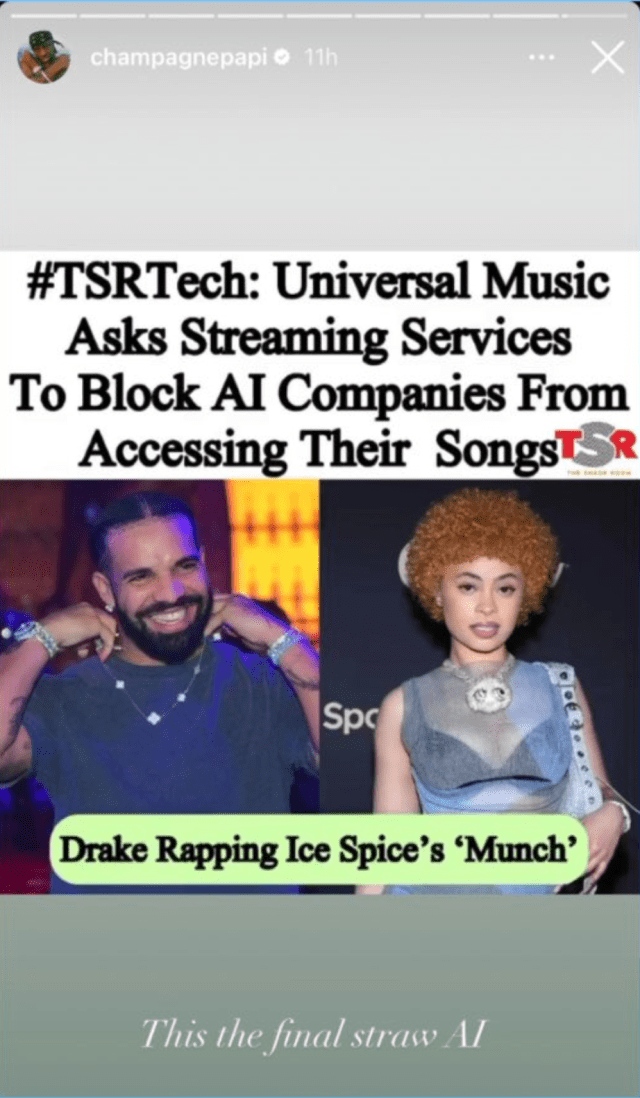AI, NIL, and Zero Trust Authenticity
Drake and The Weeknd collaborated on a new song and I am told it is a banger [but]:
This video blew up on social media the day after Drake declared in a soon-deleted Instagram Story — written in response to another AI-generated song — that “This is the final straw AI”:

This is, needless to say, not the final straw, nor should Drake want it to be: he may be one of the biggest winners of the AI revolution.
The Music Value Question
The video above is both more and less amazing than it seems: the AI component is the conversion of someone’s voice to sound like Drake and The Weeknd, respectively; the music was made by a human. This isn’t pure AI generation, although services like Uberduck are working on that. That, though, is the amazing part: whoever made this video was talented enough to be able to basically create a Drake song but for the particularly sound of their voice, which happens to be exactly what current AI technology is capable of recreating.
This raises an interesting question as to where the value is coming from. We know there is no value in music simply for existing: like any piece of digital media the song is nothing more than a collection of bits, endlessly copied at zero marginal cost. This was the lesson of the shift from CDs to mp3s: it turned out record labels were not selling music, but rather plastic discs, and when the need for plastic discs went away, so did their business model.
What saved the music industry was working with the Internet instead of against it: if it was effectively free to distribute music, then why not distribute all of it, and charge a monthly price for convenience? Of course it took Daniel Ek and Spotify to drag the music industry to an Internet-first business model, but all’s well that ends well, at least as far as record labels are concerned:
Still, artists continue to grumble about Spotify, in part because per-stream payments seem low; that metric, though, is first and foremost a function of how much music is listened to: the revenue pot is set by the number of subscribers (and music-related ad revenue), which means that the per-stream payout is a function of how many streams there are. In other words, a lower per-stream number is a good thing, because that means there was more listening overall, which is a positive as far as factors like churn or non-streaming revenue generation opportunities are concerned.
Of course the other factor driving artist earnings is competition: music streaming is a zero sum game — when you’re listening to one song, you can’t listen to another — which is precisely why Drake can be so successful churning out so many albums that, to this old man, seem to mostly sound the same. Not only do listeners have access to nearly all recorded music, but the barrier to entry for new music is basically non-existent, which means Spotify’s library is rapidly increasing in size; in this world of overwhelming content it’s easy to default to music from an artist you already know and have some affinity for.
This, then, answers the question of value: as talented as the maker of this song might be, the value is, without question, Drake’s voice, not for its intrinsic musical value, but because it’s Drake.




